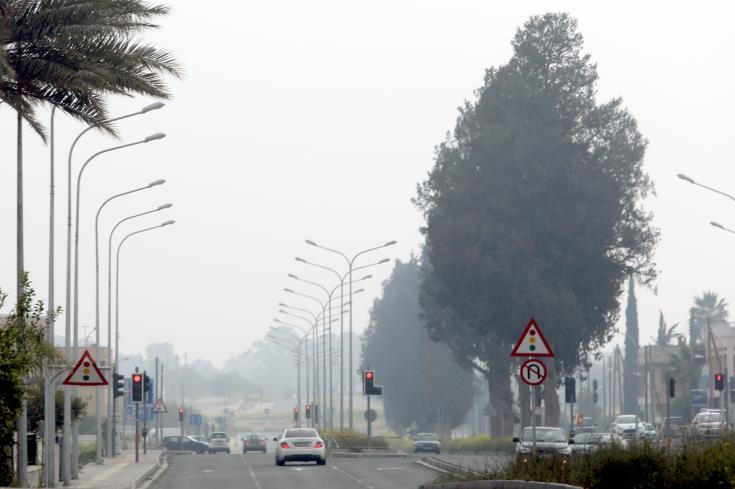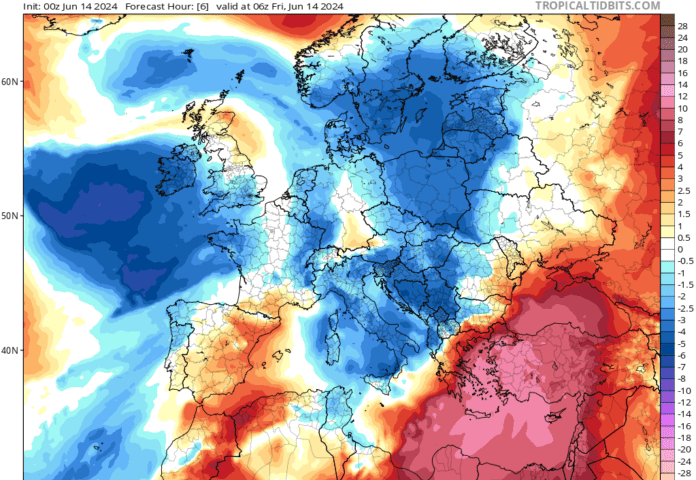Cyprus feels the brunt of an off-season heatwave while suffocating under a thick layer of dust from the Sahara Desert.
Maximum temperatures on Monday will rise to a scorching 37 degrees Celsius, well above the seasonal average of 23֯ C.
Simultaneously, the Labour Ministry recorded elevated dust levels calling on people to avoid working outdoors if not necessary.
The elderly and the vulnerable are advised to stay indoors.
Elevated dust levels were recorded in Limassol, where hourly dust concentration was 130.9 μg/m3, in Larnaca had 125 μg/m3 in Paphos 113.2μg/m3 were measured.
In Nicosia, the concentration was a lower 98.7 μg/m3 and Paralimni 54.3 μg/m3 (micrograms per cubic metre).
Dust refers to respirable particulate matter of a diameter smaller than 10μm (PM10) in the air.
According to the legislation, daily average concentrations should not exceed 50 μg/m3.
The dust will remain in the atmosphere until Tuesday, when it will begin to subside, with temperatures also dropping sharply but still be higher than average.
Cyprus to be more frequently hit by sandstorms
Climate change in recent years has meant the air quality around the globe has deteriorated, with Cyprus in for more frequent sandstorms.
“One concrete realisation is that along with increased temperatures, Europe’s most southern regions are being hit more often by sandstorms from Africa and lately from the Middle East,” an atmospheric chemist told the Financial Mirror.
Jos Lelieveld said that analyses of Cyprus and the region’s data indicate clearly that changes in weather patterns and events are ever-increasing.
The rise in temperature and conflicts has led to the desertification of vast areas in Africa and the Middle East.
More sand particles from the Sahara are lifted into the atmosphere and transported north.
Lelieveld, director of the Atmospheric Chemistry Department at the Max Planck Institute for Chemistry in Mainz and professor at the Cyprus Institute, said with areas in Africa and the Middle East becoming drier, Cyprus will suffer from dust clouds.
He said disturbances in the atmosphere, also attributable to climate change, have changed weather patterns, bringing more dust particles our way.










